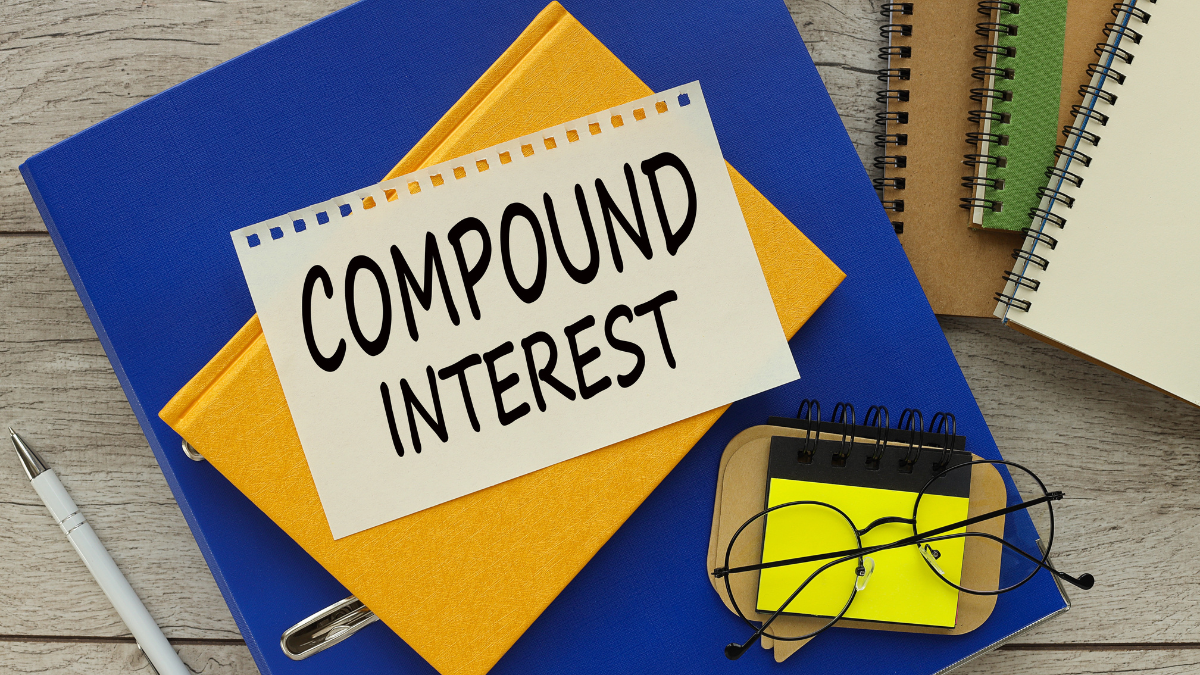When I write, I often use terms related to personal finance that you might hear a lot but might not understand. Compound Interest is something that comes up A LOT when you talk about personal finance, especially when it comes to saving money for the future.
Let’s be real: most of us weren’t taught about compound interest in school.
And if it was mentioned, it probably flew right over your head while you were worried about who you were going to hang out with at lunch.
But here’s the thing: compound interest is one of the most powerful tools in the personal finance world, especially if you don’t make a ton of money. And the earlier you understand it, the better off you’ll be.
What Is Compound Interest?
Compound interest is what happens when you earn interest not just on your money, but also on the interest you’ve already earned.
It’s basically interest earning more interest, like money having little money babies (sorry for the bad metaphor).
A Quick Example (With Easy Math)
Let’s say you put $100 into a savings account that earns 5% interest per year. If the interest compounds yearly, here’s what it looks like:
- After 1 year: You earn $5. Now you have $105.
- After 2 years: You earn 5% of $105 = $5.25. Now you have $110.25.
- After 3 years: You earn 5% of $110.25 = $5.51. Now you have $115.76.
It starts small, but fast forward 20 or 30 years, and you’re not just adding $5 a year anymore. You’re earning interest on all the previous interest, too. That’s the magic. That’s why this is such a powerful concept to apply towards your savings journey.
Why This Matters If You Don’t Have Much Money
A lot of financial advice is geared toward people who are kinda better off to start with. But compound interest is especially important if you’re starting poor and starting small.
Why?
Because:
- Time is your best friend. The earlier you start, the less you have to invest to build real wealth.
- You don’t need a huge income. Just consistency. Even putting away $10, $20, or $50 a month adds up when interest is compounding over time.
- Your money works while you sleep. Once it’s invested, you don’t have to do anything. It just grows in the background.
So Where Do You Get Compound Interest?
Here are a few common places:
- High-yield savings accounts (great for a place to park money that you need accessible aka emergency fund)
- Certificates of deposit (CDs) (slightly better interest, but money’s locked in for a while)
- Retirement accounts, like a 401(k) or Roth IRA (can’t access these without penalties until retirement age)
- Investing in index funds or ETFs (this is where the real long-term growth usually happens but slightly more risky)
Note: Investing in the stock market has ups and downs, but historically, it grows over time, and compound interest plays a huge part in that growth.
But I’m Broke… Where Do I Start?
Fair question. You don’t need to dump $500 into an account right now.
Here’s a realistic game plan:
- Start with just $10 or $25 a month. Pick a number that doesn’t stress your budget.
- Open a high-yield savings account or Roth IRA with a low minimum.
- Use automatic transfers so you’re not tempted to skip a month
- As your income grows, increase your contributions, even if it’s just $5 more every few months. In fact, when I started saving, I put just $5 a month in my retirement account.
It’s not about being perfect. It’s about being consistent.
Every Dime Counts.
Start small. Start now. And let time do the heavy lifting.
Read More:
- How To Use the Cash Envelope System To Budget Your Money Effectively
- How To Pay Yourself First
- 5 Budgeting Methods To Consider

